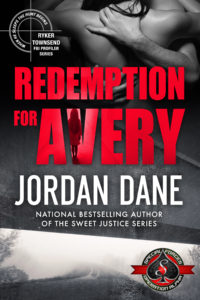Happy Monday!
Today we’re reviewing the first page of a book entitled ‘Tree of Heaven’. My comments follow.
Tree of Heaven
18 September 1833, Zoar, Ohio
“I’ll get what’s coming to me, I will!”
The bellow of a man’s voice punctured the late morning’s peace and brought Adelaide Bechtmann to a standstill outside Josef’s log cabin.
She ducked under the low-hanging branches of an apple tree, snagging a bonnet tie on a leafy twig. She jerked it loose. What should she do? Call out? Had they seen her? Heard her?
A glance through the open door of the cabin allayed her concern. Engrossed in their argument, the men saw none but each other.
The Separatists’ leader faced the stranger across the table that centered the one-room cabin. His face flushed, and his fists tightened on the edge of a chair. “I owe you nothing, nothing.”
“You signed her indenture.”
What? Indenture? What did he mean?
Adelaide studied the man stylishly dressed in gray and white striped trousers, checkered waistcoat, and long-tailed black coat. Whatever was he doing in Zoar? Plain-dressed and plain spoken, the Separatists seldom saw such finery, though Adelaide had encountered men so adorned in Bolivar when she’d gone to the city for a birthing.
The man shook a paper in Josef’s face. “You owe me for—”
“She died, you fool.” Josef batted the paper away. “You can’t collect from a dead woman.”
Dead woman? Who’s dead? And what’s an indenture?
The man’s chin jutted. “You signed for her.”
“I signed for them all. I was, am, their leader. And I settled all my debts before I left Philadelphia.”
The stranger waved toward the outdoors, and Adelaide scooted back against the tree. “All this land, this industry, this prosperity that you’ve built on the backs of these people. You’ve the money to pay.”
They did indeed. Pride rushed through Adelaide. Only ten years old when they’d arrived, she’d watched her fellow Separatists work hard to carve their village out of the wilderness, helping as she could, totting baskets, buckets, and boxes to waiting workers. By their efforts, tenacity, and, Josef would say, the grace of God, they’d prospered in this new land.
My comments
Overall, this first page successfully sets a scene of a conflict in what I assume is a straightforward historical fiction novel (at least on the first page I don’t see the signs of either a mystery or thriller to come). I liked the way that Adelaide stumbles upon the argument and how we get, quickly and easily, a sense of the conflict to come. The speech and inner voice sounds authentic for the time period and I like the immediacy of the situation. My main quibbles really come down to two main areas: Historical grounding and voice.
Historical grounding
I admit I am not well versed in American history, so I did look up Zoar and Bolivar in Ohio and the early 19th century German separatists who settled there. However, the key to any historical novel is that a reader shouldn’t have to have (1) any prior understanding of the historical period; or (2) have to look up the historical references to understand what is going on. I do think, even on this very first page, we need more grounding in the historical period. One option, if the author doesn’t want to interrupt the flow of the first page, is to have a brief summary in either a prologue (yes, the dreaded prologue) or another hint – say a newspaper or historical excerpt that gives the reader a quick ‘heads up’ before the story begins. For example, if I’d had a quote from one of the German separatist leaders about their reasons for coming to Ohio, their journey, and settlement then I would have been able to place everything on the first page in better context (rather than having to do an internet search to see who the separatists were and why they had come to America).
I do like the paragraph about her noticing the stranger’s clothes – especially the old-fashioned use of words. This definitely felt authentic. Th page could have done with more description to be able to visualize the setting and the characters. In historical fiction, you have a little more leeway to introduce exposition like this early on as it helps ground a reader in the time period (particularly for readers who have no real sense of what the 1830s would have been like in America). More sensory information would have been great to really make a reader feel like they were there (the smell of smoke from the fire, maybe cooking (?), the stranger’s cologne or other elements to make us feel we are right there with Adelaide looking on at the scene).
That being said, I liked that we didn’t get a huge historical data dump, and that the author led with action and character interaction in this first page. This, however, leads to my second comment, which is a question of voice.
Voice
In this first page we don’t really get a strong sense of voice from Adelaide yet. Her inner questions suggest someone young – maybe a teenager or young adult – and yet we aren’t entirely sure why she seems to have no idea what indenture meant. Again, not being an expert on American history, I don’t have a strong handle on this time period, but based on what I have read it sounds like indentured servitude was a common practice given the need for labor at the time. So my question would be, why would she not know the word? Also when Josef speaks of the woman being dead I would assume in a small knit community Adelaide might be able to make some guess as to who the dead woman might be – rather than thinking ‘what dead woman’, I would expect her to think ‘did he mean X?’ or perhaps she knows Josef is lying…again, that isn’t clear on this first page.
Voice is critical to any first page – it’s what sets a book apart and what draws a reader in from the start – so my key recommendation is to make Adelaide’s voice stronger and unique. If she is a young adult then make sure the reader knows her age and understands her confusion. At the moment she sounds hesitant (doesn’t want them to know she’s there) and naive. This is fine but sometimes a stronger, more interesting voice can intrigue a reader. I, for one, wanted two girls to be there – one (Adeliade) who was quite prepared to go striding in there and demand to know what was happening and the other a girl holding her back (representing the more historically ‘appropriate’ type of young woman). At the moment there’s nothing about Adelaide yet that makes me want to keep reading her story (and because it is her POV as a reader I’m assuming it is her story).
Overall, I think this first page had a lot of appealing elements. It sounds like an intriguing time and place for a novel and I would love to read more about the separatists’ experience in America. With some fine tuning I think this first page could start a compelling historical novel – with the focus being on historical grounding and strength of voice.
So TKZers what do you think? What constructive comments would you give our author?









